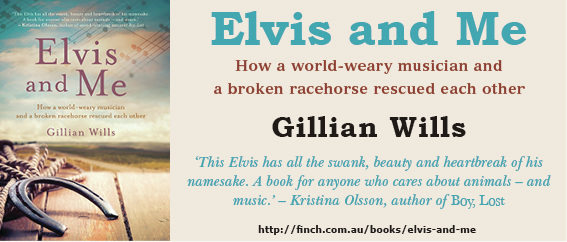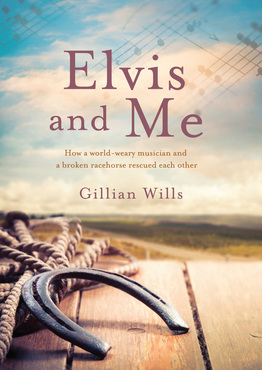1. Many of us have a wish list but the practicalities of life often whittle it down to a much shorter and more achievable ‘needs’ list. Why do you think we sometimes need to allow our hearts to rule our heads?
Because our intellectual side can become too dominating which reduces spontaneity and inhibits risk taking, creativity and joy. I was pleased when a wilder Gillian revealed herself on the hillside in Green Pigeon in NSW because my analytic thinking side was strangling me.
2. Writing a memoir in which you write about real people must be like ‘walking a tightrope’ at times when personal observations might be less than flattering. How did you deal with this element? Did you use pseudonyms? eg. Annabel the lawyer.
Yes, it is sometimes tricky so doing things like locating them in a different locale and giving them a fantasy appearance, different mannerisms, body shape, and changing their status as married or single, with or without children, offers a disguise to protect them.
3. The powerful silent communication between horse and human, and between musicians was an ‘aha’ moment for me. You drew other parallels between training horses and musical performances. Do you believe these parallels are more to do with the way we interact in a broader sense?
If I am understanding you correctly, I do think there are parallels. The most productive state to be in to train or ride a horse is when you empty your mind of pressing concerns, upsets, and feelings from anxiety to happiness and sadness and be assertive rather than hectoring or too timid.
Unless the balance was right, and I was in that zone of stillness and openness and receptivity ─ listening if you like ─ Elvis did not engage with me productively.
As a performer trained at the Royal Academy of Music, I cultivated this ‘state’ before beginning to play, but it is also useful for so many of life’s scenarios such as in encounters with people and in coping with waiting to have an operation or giving a public talk, or when being interviewed.
4. I enjoyed how you described the different worlds but observed they are kept separate - art, music, equine etc. Has the ability to cross between them changed in the several years since your journey with Elvis began?
The separation of these worlds in the beginning of my equestrian activities was because I was less self-realised than I am now. I feared ridicule, being disapproved of or not being taken seriously as a professional or as a horse owner. These days I am open about it.
During the period of feeling when I was feeling rather sensitive about my purchase of an unsuitable horse, doctors would preach ‘aren’t you too old to be riding a horse?’ Funnily enough, now, I am never asked that question and doctors do not question my riding activities.
5. There are a number of key moments in your relationship with Elvis when your decisions could have gone differently. On reflection, what was the most important of those defining moments, and why?
I am a person who doesn’t very easily move on. I am very determined and committed about jobs, to projects and the adventure of Elvis. If something is not working, I will just keep thinking of another way to achieve my goals. Sometimes this is detrimental to my wellbeing, but in many circumstances it has been beneficial. There is enormous satisfaction in achieving something despite all the odds against you.
I could have sold Elvis to Miranda’s father; I could have sold him to the young woman the farrier said was a good rider and would give him a good home, especially when I was cross that he was still tricky to saddle and ride after his restart. But I was deeply involved and felt responsible for him. The other factor is that he could have been passed on to an unsuitable home or being sent to the knackery which was unthinkable having got to know his personality and sensitivities.
I was disappointed after I got Mallory that I gave up trying to ride Elvis, but then I needed my hands, undamaged, to write and play the piano and at my age cannot afford to suffer physical disability.
6. How do you now view the day you first met Elvis?
As an exciting, life-defining moment and one in which Rhys and I connected deeply. It was as important to me as being accepted into the Royal Academy of Music ─ except that I didn’t yet know the consequences of my purchase!
7. As an English woman living in Australia, Wooloongabba was ‘exotic’. What makes a place ‘exotic’ to new residents?
Well for someone like me with an intense interest in wildlife, nature and all kinds of creatures, Wooloongabba was exotic. The sight of a flock of fruit bats flapping across the sky at dusk was amazing. I loved the reptiles I saw, the tropical foliage, and the ease that Queenslanders seem to have with their bodies. Even the floods and intense heat feel special. The extreme weather is very exotic to me when our Queenslander shakes in thunderstorms. When I lived in Melbourne, I would walk around Carlton admiring the weatherboards with their iron trimmings for instance. Australians have different attitudes from the English, and I love the direct approach when in a community of people.
I loved reading about Elvis and how you changed each other's lives. Thanks so much for sharing your stories with us.
Gillian and Elvis' story is available in print at all good book stores.


 RSS Feed
RSS Feed
